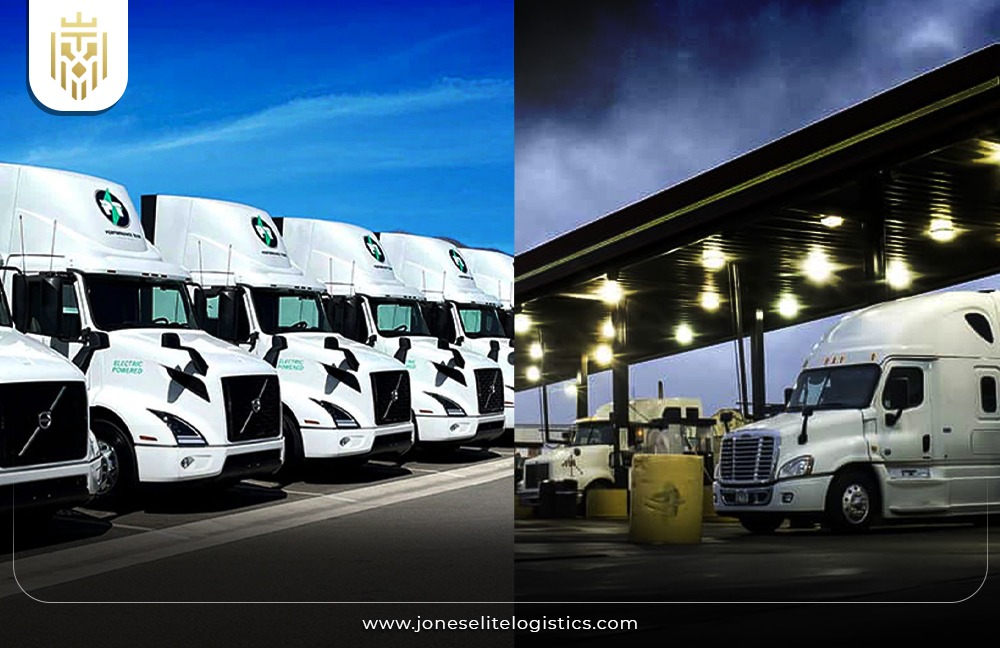Understanding Sustainable Logistics: Key Concepts and Benefits
In the current world wherein concerns about the existing environmental issues have taken center stage, the idea of sustainable logistics can be ranked prominent for companies. Sustainable logistics or sustainable supply chain operations involve the development of forward-thinking strategies and approaches that are ecologically compatible and strive to minimize negative effects on the environment. The measures revolve around using the resources efficiently, adopting green technologies and minimizing emissions. The positive impacts associated with the green logistics system are not only confined to environmental protection but also comprise economic savings. Adopting sustainable logistics can provide various benefits to companies like minimizing expenses, substantiating their brand reputations, and contributing to a future of sustainable ecosystems. You can learn and understand the trends across the logistics sector in India, solutions to adapt and a few stories about Indian companies thriving in sustainable logistics.

The Rise of Green Logistics in India: Trends and Initiatives
In the past few years, businesses have transformed the logistics sector in India by adopting green and sustainable measures across the supply chain. Companies in the Indian market are getting more conscious about environmental issues, with the rising awareness. Businesses have come up with various measures for environmental protection and improvement in sustainable development, and thus, they are including eco-friendly practices in their supply chain operations. The green logistics sector in the country has been consistently working towards the improvement of their operations not only by improving their methods but also by choosing effective transportation facilities. circulation of electric vehicles, the adoption of renewable energy, the use of technology for optimal route optimization and centralized fleet management, and the establishment of green warehouses and distribution centers are all contributing to a sustainable logistics system. The adoption of sustainable solutions has also been encouraged by the government and many industry bodies through spreading awareness and additional benefits.

Sustainable Transportation Solutions: Innovations Driving Change
Transport is a fundamental part of the logistics industry which also has a significant impact on carbon emissions. To make these operations more sustainable, businesses are turning to some innovative solutions. One of the prominent examples is Electric Vehicles (EVs)have recently gained popularity in the Indian logistics sector. Firstly, EVs provide zero-emission transport and reduce the reliance on fossil fuels. Apart from EVs, other sustainable options like bio-diesel, compressed natural gas (CNG), and hydrogen fuel cells can also be used as alternatives. Additionally, there has been a lot of innovative technology developed and a new form of smart transportation systems, which shorten the routes, lower the congestion and use less fuel while minimizing emissions.

Case Studies: Indian Companies Leading the Way in Sustainable Logistics
Several Indian enterprises are ahead of the curve in sustainable logistics and have set an example for others to follow. An example of such a firm is Mahindra Logistics which has been striving to reduce its negative impact on the environment through route optimization, vehicle tracking systems, and use of alternative fuels. Another prominent company that focuses on sustainable logistics is Flipkart, a leading e-commerce company in India, which is planning to convert to Electric Vehicles (EVs) completely by 2030. This e-commerce business has already taken the initiative by implementing the use of EVs in some cities and for now making investments in the construction of recharging facilities. These case studies provide insight into the measures companies are taking to ensure minimal effect on the environment.

Policy Support and Regulatory Framework for Sustainable Transportation
The government authorities at several levels in India are now recognizing the significance of sustainable logistics and are coming up with policies to ensure a long-term outcome. The National Urban Transport Policy (NUTP), which puts together urban mobility policy-making, was amended to have low-carbon mobility solutions as its primary goal. The government has introduced a lot of guidelines regarding the emissions of vehicles and the impact they have on the environment. It is important for individuals to comply with the standards through regular checks. However, keeping track of the various guidelines in various cities in India is important for businesses to effectively perform their operations.
Collaborative Efforts: Partnerships Driving Sustainable Transportation
To effectively bring about the transformation in sustainable logistics in India, partnerships and collaborations with all stakeholders are crucial. Many stakeholders from governmental bodies to industry associations, logistics companies, and technology providers amongst others, are connected in a bid to develop a more sustainable future. Initiatives such as the Logistics Environmental Sustainability Charter (LESC) not only bring different groups together but also aim to collectively solve the environmental problems that hinder the smooth flow of logistics. Such partnerships enable the sharing of knowledge, collaborating on best practices and collective initiatives to ensure eco-friendly transportation.
Future Outlook: Future of Sustainable Transportation
Sustainable transportation in future India has the potential for immense developments. The expansion of green logistics and eco-friendly transportation is expected to grow as the business recognizes its impact on the environment and is looking to be more environmentally responsible. The future of sustainable transportation is regularly predicted to embrace the increase in the use of electric vehicles and other transport solutions. The emergence of charging infrastructure hand in hand with the encouragement of supportive policies and the promotion of incentives will move this shift to eco-friendly transport at a faster rate. With the stakeholders coming together to explore and develop more sustainable options, it is foreseen that one day sustainable logistics will be the norm rather than the exception in India’s transportation industry.
Sustainable logistics in India is gaining importance everyday because of the positive impact it has on the environment. Technological advancements and further innovations have majorly contributed to the success of green logistics in India. Major companies are utilizing technologies to optimize their routes to reduce distance, costs, and emissions. Backed up by the new ground-breaking policies, collaborative work, and optimistic expectations for the future, sustainable logistics is ready to remodel the Indian transport industry by cutting carbon emissions. To ensure sustainable and low-emission logistics in India, contact Jones Elite Logistics.
FAQs
1. What is sustainable logistics, and why is it important?
Sustainable logistics is essentially taking eco-friendly measures throughout the supply chain, especially in transportation. It is important to reduce the negative impact on the environment and reduce the carbon emissions.
2. How do collaborative efforts increase the effectiveness of sustainable transportation?
Through collaborative efforts, businesses can ensure an effective sustainable transportation system by utilizing each other’s best practices, resources and technologies to ensure smooth flow of goods through the supply chain.
3. What initiatives are being undertaken to promote sustainable transportation solutions in India?
Initiatives like use of EVs, alternatives for fossil fuels like bio-diesel and CNG along with route optimizations technologies are being used to promote sustainable transportation solutions in India.
4. How does the policy framework support sustainable transportation in India?
Government has been taking initiatives to promote sustainable transportation in India by implementing policies that ensure long term outcome. By keeping a check on carbon emissions and regulating it, the government is ensuring businesses along with individuals are accountable for their environmental impact.







